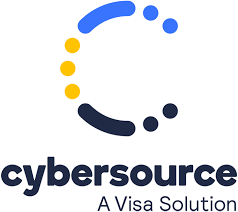A virtual terminal is an internet-based terminal that gives small businesses a way to accept credit cards and other forms of payment without any of the equipment or software that’s needed for a full Point-of-Sale system. But it’s much more than a digital version of a physical terminal. Keep reading to learn more about what virtual terminals are, which merchants use them, and some of the benefits of internet-based terminals for small businesses.
What Is a Virtual Terminal?
A virtual terminal acts like a physical Point-of-Sale station — the card reader and tabletop terminal merchants use to accept payments in a brick-and-mortar store. But instead of setting up all of that equipment, merchants with a virtual terminal just have to sign up for the virtual terminal they want and then log into from whatever internet-connected device they have with them. Once logged in, merchants can access a dashboard that allows them to key in credit card information, generate and send online payment links for customers who prefer to key in that information themselves, create invoices, and do other related tasks. These internet-based terminals are primarily used by small businesses that accept phone orders, service providers who are always on the go, and other merchants who need the flexibility of a terminal they can access from anywhere.
6 Benefits of Internet-Based Terminals for Small Businesses
Here are some of the main reasons small businesses opt for virtual or internet-based terminals.
1. No Upfront Investment in Hardware or Software
For new small businesses, there are already so many startup costs adding up that forking out the cash for a brand new tabletop terminal or a complete PoS station might be too much. Virtual terminals don’t require any hardware or software to set up. This makes them a much more affordable option for small businesses who can then transition to a tabletop terminal later when they have more consistent revenue coming in.
2. Flexibility and Mobility to Accept Payments from Anywhere
For merchants whose business keeps them constantly on the go, like plumbers, electricians, or landscapers, the option to just login into your virtual terminal from a phone or tablet means you can accept payments from the customer right then and there. There’s no need to lug around hardware or download any special software. Just login and then ask your customer which payment method they prefer. This kind of flexibility is also great for merchants who travel a lot. Instead of bringing expensive equipment with you to an event, you can just login to a virtual terminal and you’re ready to go.
3. Offer a Wide Variety of Payment Methods
One of the key reasons to invest in a terminal at all is to enable merchants to accept more forms of payment. Many customers prefer to pay with cards or digital wallets over cash, for example. So a cash-only business can end up losing out on sales if customers don’t have the option to pay with their preferred method. A virtual terminal lets merchants start offering a much wider range of payment options without having to invest in the equipment needed for a physical PoS system.
4. Manage Your Business from Anywhere
A virtual terminal is more than just a way to accept payments. It can also act as a record keeper of all your sales and provide other data and insights into your business—all of which can be accessed from any device. So you can check in on your business and make informed decisions no matter where you are. With National Processing, for example, your virtual terminal can collect customer contact information and purchase history to find cross-selling or promotional opportunities among your past customers. You’ll also have access to other business insights, like which products are your top sellers.
5. Access to Extra Payment Features that Physical Terminals Don’t Normally Have
Virtual terminals are more than just a virtual version of your tabletop terminal. They also tend to offer a few additional payment features that a tabletop terminal might be missing. That includes the option to create invoices, send payment links to your customers, and set up recurring payments. These extra features can be especially useful to service-based professionals like lawyers, accountants, or photographers who typically bill for a set of services provided or a set period rather than on a per-service basis.
6. Multiple Levels of Security
Virtual terminals come with multiple layers of fraud prevention and security to ensure your customers’ payment information is safe. That includes address verification service (AVS) and credit card verification value (CVV) which ensure the billing address and CVV code on the back of the card match those associated with the credit card number.Not only does that make transactions more secure, it can also bump your card-not-present transactions into a better interchange category that comes with lower fees. Often, you even have the option of connecting a small card reader to your phone or tablet to use with your virtual terminal so you can process card-present transactions which come with even lower interchange rates than card-not-present transactions.So if you work with a payment processor like National Processing that uses interchange-plus pricing, those extra security features and payment options can end up saving you a lot of money on transaction fees.
Frequently Asked Questions About Internet-Based Terminals for Small Businesses
Here are some of the most frequently asked questions merchants have about internet-based terminals for small businesses.
What is the difference between a terminal and virtual terminal?
A traditional terminal includes all the physical equipment of a Point-of-Sale system including the card reader and the customer’s physical card. A virtual terminal is like a PoS system but for online orders as well as payments made over the phone, by mail, or when making sales on the go.
How does a virtual terminal work?
A virtual terminal works pretty much the same as a standard terminal but without the hardware. Instead, merchants login to their virtual terminal from whatever device they are using. Then, they can begin accepting a variety of payments wherever they are.
What are the benefits of virtual terminals?
The key benefits of virtual terminals are their low startup cost and the flexibility to access them from any device with an internet connection. With no hardware or software required, there’s no expensive equipment to buy and merchants can log in to a virtual terminal and start accepting payments from anywhere.





